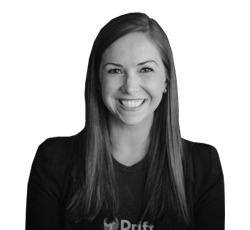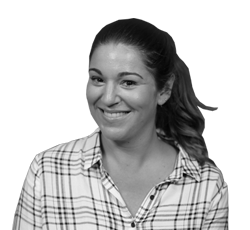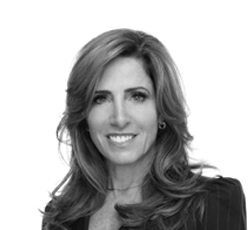Preventing Churn Through Strategic Objection Handling
Lizzy Rosen
|
VP of Customer Success
of
Vendr


Lizzy Rosen


Episode Summary
Today on the show we have Lizzy Rosen, the VP of Customer Success at Vendr.
In this episode, Lizzy shares her extensive experience in shaping the future of SaaS buying and how Vendr is revolutionizing the sales process to make it more efficient and transparent. We delve into the heart of objection handling, discussing how strategic approaches can significantly reduce customer churn and enhance retention rates in the competitive SaaS market.
We then explored the challenges and strategies involved in negotiation and pricing, and we wrapped up by discussing the crucial role of data in driving decisions and ensuring fair outcomes for both buyers and sellers.
As usual, I'm excited to hear what you think of this episode, and if you have any feedback, I would love to hear from you. You can email me directly at Andrew@churn.fm. Don't forget to follow us on Twitter for the latest updates.
Mentioned Resources
Transcription
00:00:00 Lizzy Rosen: I think that the thing that's most important is we're not just trying to get a deal, we're trying to get a fair price. We want to make sure that we're working to get something that's fair for both sides. We're not looking to just bully people into a discount. We want it to be fair.
00:00:00 Andrew Michael: This is Churn.FM the podcast for subscription economy pros. Each week we hear how the world's fastest growing companies are tackling churn and using retention to fuel their growth.
00:00:35 VO: How do you build a habit forming product? We crossed over that magic threshold to negative churn. You need to invest in customer success. It's always comes down to retention and engagement. Completely bootstrap, profitable and growing.
00:00:49 Andrew Michael: Strategies, tactics and ideas brought together to help your business thrive in the subscription economy. I'm your host, Andrew Michael, and here's today's episode.
00:00:59 Andrew Michael: Hey Lizzy, welcome to the show.
00:01:01 Lizzy Rosen: Thank you. I'm happy to be here.
00:01:03 Andrew Michael: It's great to have you. For the listeners, Lizzy is the VP of customer success at Vendr shaping the future of SaaS buying. Prior to Vendr, Lizzy was the SVP of customer success at Thrive and VP of customer success at Pluralsight. So my first question for you Lizzy is, how is Vendr shaping the future of SaaS buying?
00:01:23 Lizzy Rosen: Yeah, that's a great question. So Vendr was created in order to fix sales is really the mission of what we're trying to do. So as many of you have probably experienced buying software, it can take longer than buying a house. It's a lot of back and forth. There's a demo involved, there's negotiation, there's a trial. And so what our founder realized as a sales rep himself is that there's a lot of efficiencies that can happen there to be able to make it easier to buy and sell software, and therefore, decrease the overall cost of acquisition for a new customer, but also like we can do that through both workflow efficiency, but then also by creating transparent pricing and fair play in fields.
00:02:10 Lizzy Rosen: So for instance, as a sales rep, he was realizing that he could change the price at the end of the quarter. He could save a deal if he already met his quota. And so realizing that this was the case, we wanted to really become that organization that can try to help to fixed sales so that both buyer and seller can have a better outcome. We can get to a fair price faster so that we're saving time and resources on both sides.
00:02:35 Lizzy Rosen: It's been interesting. When I first was approached by a Vendr, I was actually in the process of buying a house and doing a little bit of work on the house and getting bids from contractors. And it really landed for me like, am I getting a good deal here? I mean, you know, these contractors are telling me how much it's going to cost to do an addition on the house to do this work, to do that work. And all I could wonder is like, is this fair? And so it really landed for me when I was talking to Vendr and understanding the overall mission that this isn't just procurement software. We're really trying to fix the way that people buy and sell to make it equitable for everybody to be able to get the right price. And so it's been exciting to be a part of a company that has a bigger mission, but then also in this overall environment where things are really changing in the software buying landscape.
00:03:27 Andrew Michael: Absolutely. Yeah. That story resonates like so much with me as well. We're actually busy going through a process of building a house now and going to get quotes and doors like my wife was having a chat there and she's like, maybe we should go to this company. They're giving us a 40% discount. And I was like, but it's the same price as the other company. Are they really giving us a discount? Is that just something they do for everybody and like make you think you're getting a good deal, but you just don't know at the end of the day.
00:03:51 Lizzy Rosen: Exactly. Yeah, it's all kind of a game at the end of the day. And so how can we remove the games and just get down to business, right?
00:04:00 Andrew Michael: Absolutely. And I think like there's definitely been a shift of more transparent pricing in the software space, but there's still a large amount of companies that gatekeep their pricing behind sales calls. And then like you say, that you just don't know are you getting a good deal or not and what is actually out there. So I thought it would be interesting as well to chat today specifically as well, because there is so many changes happening in the market now as well. And I think from your perspective, you have a different view of the market.
00:04:28 Andrew Michael: So I've been talking to a lot of CS leaders lately, founders, execs, and there definitely is a lot of downward pressure in the market there. Everybody's feeling churn. Everybody's seeing a lot of downgrades, but you get to see the sort of happening in real time at a much larger scale, I think as well. And also from the sales perspective, then in terms of how deals are closing. And I'm keen to hear your thoughts. You said things are changing at the moment. What's changing? What are you seeing from your perspective with Vendr?
00:04:59 Lizzy Rosen: Yeah. I mean, I think that first off our customers, when they first come to us, especially if it's a new CFO, for instance, that's joining a company, they all kind of want the same thing, which is visibility into the tech staff. They want to understand what they're paying for. What the current price is, when the renewals are, if people are paying for things on credit cards, right? Like they want to understand that shadow spend as well. And so that's the first thing is that, and I don't think that's really changed. Just people want to know what they're, what they're spending on.
00:05:25 Lizzy Rosen: And then the next thing is, you know, they want to understand what they're potentially overspending on or they have too many licenses for because of the macroeconomic headwinds that we're seeing in the market. People want to make sure that what they're paying for, they're actually getting value out of. But in terms of the changes that we're seeing, we're starting to see that there are some of those big players that have those high gross retention rates that are able to negotiate upsells and continue to have that really strong place in the market.
00:05:53 Lizzy Rosen: But we are starting to see some smaller competitors come into play that are really starting to challenge those big players. So I think that's interesting that we're starting to see that. And I think part of that is because of the macroeconomic environment is that, right now, maybe a solution that has a little bit less feature or functionality, but has a better overall cost, is something that a company's willing to, you know, actually make a change to. So we're starting to see that, and that's overall consolidation of tools, but then also moving to a lower cost competitors.
00:06:27 Lizzy Rosen: And then we're also seeing too, that still some of those big players, we're not so much trying to get them discounts, but we're trying to avoid increases as well. And we're finding that companies are trying to really change the way that they do discounting or change their overall sales strategies in place to be able to fit the market needs. So relying a little bit more on multi-years or giving discounts in exchange for other concessions. So it's changing a little bit, I would say, when it comes to that. But I also think that at least in the Vendr community, we're more powerful right now because we do have data and insights to be able to impact overall negotiation, right? We know what levers can help our customers be able to work with suppliers to be able to get a fair price. And so by arming our customers with that data, we can help them get to that end result faster.
00:07:25 Andrew Michael: Yeah, it's very interesting that you're seeing in the market sort of these stronger players now, obviously a little bit of pressure in terms of not forcing upgrades and expansion, but then also having losing actually deals to cheaper competitors.
00:07:39 Andrew Michael: Cause I think like one sort of space like nobody ever really wants to compete on his price because it's just like a march to the end for everybody at the end of the day, but in this environment, like the consumer are making these switches and they are making these decisions. Who do you predominantly work with then from a customer success perspective? Who is your customer? Like who are you talking to on a day-to-day basis?
00:08:05 Lizzy Rosen: Yeah, we're typically talking to finance or procurement on the CSTM, but then when it actually comes to negotiating deals or coaching our customers or negotiating deals, it could be anyone within the organization that buys or sells SaaS. Or sorry, that buys SaaS. So for instance, if we're working, if our customer has an upcoming Gong renewal or Salesforce renewal, we could be working with a CRO to be able to guide them through that negotiation and help them with our data. So we could be working with really anyone in a company that owns software. But our main on the customer success side when it comes to like the Vendr renewal, for instance, is typically someone in finance or procurement.
00:08:45 Andrew Michael: In procurement, yeah. So how are you dealing with this pressure then as well from the perspective? So it's obviously like all CS teams are facing this now, but in your position, are you seeing something similar that you see in the markets and the trends?
00:08:58 Lizzy Rosen: Yeah. I mean, I think that in this market, it's easier to get a discount for instance. So how do we show our value? Right. And so we're definitely feeling that pressure too. I think anyone in customer success is feeling that pressure right now or at any SaaS company. And so really, it's talking about the value story is how are we positioning value? How are we helping our customers realize value? And how are we making it really easy for them to do their jobs with our software? Right? I think about it, you know, we just purchased a CS platform and I love to be in that situation because I get to be the customer and really put myself in the shoes of the customer.
00:09:35 Lizzy Rosen: And all I think anytime I speak with them is just tell me what to do, tell me how to do it and tell me when to do it, right? And so how do we just make it super easy for our customers to be able to get the outcomes that they want using our product and our services? And so really that's the approach that we're taking is how do we just keep it really simple and be able to give our customers a product that meets their needs, but then also the overall guidance and support that's going to be straightforward, easy and in the place that they live today. So whether that be Slack teams, right? So that it's really a no-brainer when it comes to working with us. We just want to be easy to do business with.
00:10:14 Andrew Michael: I think it's very interesting and I'm going to start asking a line of questions now. I'm not sure if you're going to be happy to answer this, but I'm going to run with it anyway. You basically help all your customers to negotiate better deals on their behalf as well so that they can make savings with their source products. But you also have a customer success team that deals with customers that's also they're trying to make sure that they can potentially expand with these customers and clients and probably having the same conversations that your vendors are having. Are you doing any interesting training when it comes to your CS and your sales team to be able to handle these objections and to be able to push back?
00:10:53 Lizzy Rosen: So we have a team, our professional services team, our expert negotiators, right? That's the team that's helping our customers. And so, yes, I do ask them to come and do objection handling training for my team, negotiation training for my team so that they can better understand and really eat our own dog food is how can we make sure that we're learning from our team that's negotiating thousands of deals? How can we learn from their best practices that we can use them with our customers? But I think that the thing that's most important is we're not just trying to get a deal, we're trying to get a fair price.
00:11:28 Lizzy Rosen: So we want to make sure that we're working to get something that's fair for both sides. We're not looking to just bully people into a discount. We want it to be fair. By having our community insights, it's really to try to gauge whether or not you have a fair price based on your license, number of licenses, your employee size, whatever it may be. That's the criteria that the supplier has for pricing out their software.
00:11:58 Andrew Michael: This objection handling as well. Can you mind if we dive into this a little bit, just to understand how it works and operates?
00:12:06 Lizzy Rosen: Sure.
00:12:07 Andrew Michael: Yeah. So you mentioned you have these experts on the team. They're working with your CSM and sales team members. What does training look like in this instance? And maybe like, what are some of the things that are being taught to the team?
00:12:20 Lizzy Rosen: Yeah. I mean, I, when it comes to like our professional services team, right. I don't own that team, but it really comes down to probably what you would be looking at if you were negotiating software on your own too. Are you looking at competition? Are you understanding the usage of all of the licenses, for instance? Are they being used? Are you looking at the value that you've received of the product? How are you quantifying the value of that? Really just trying to get into the nitty gritty of what is the value that's been provided so that we can use that as a lever to be able to understand if the cost of the software equals the value received and then really just relying on that when it comes to the overall negotiation.
00:13:05 Lizzy Rosen: I can't get too much into all of our data sources because that is proprietary, but I would say it's really just having a plan going into a negotiation or a renewal or a new purchase. And also making sure that you're open to looking at all of the other options that are out there. You know, there are so many great software companies right now where you can get a wonderful product. And so making sure that you're moving forward with the product that is going to suit your needs best, both from future and functionality, but then also from overall investment.
00:13:36 Andrew Michael: Yeah, interesting. So a customer comes to you then, like, hey, Lizzy, we're going to get rid of Vendr. We, the CFO has taken a look at the budget line and where we can't keep it around anymore. How are you handling my objection?
00:13:51 Lizzy Rosen: Yeah, well, typically we want to understand, right? Vendr does help create dollar savings, but we also create time savings as well. And so for instance, I would want to know the makeup of your procurement team who is going to be negotiating these deals if Vendr isn't there. So typically our customers, I should say typically a lot of our customers will, you know, have Vendr do negotiations on their behalf for their smaller contracts.
00:14:15 Lizzy Rosen: And they'll do that because those contracts, their time is more valuable than the potential savings that they might get there, right? So they want to outsource those pieces. But then in the larger contracts, we're coaching and guiding in the background to be able to help get the best outcome for our customers. And so, being able to prepare both the dollar savings, but also the time savings that Vendr’s providing, I think is crucial in being able to create our overall value story of how we're impacting their organization.
00:14:45 Lizzy Rosen: So I'm typically taking that approach of understanding, first off, what's changed, but then also understanding the value that we've delivered over the past year and then looking forward to see, hey, what renewals do you have coming up? And based on the renewals that you have coming up, what could our overall impact be on those? So creating a vision for the future. So for instance, if you have one of your largest renewals coming up in several months, and I know that we have lots of data on that. And that based off of all of our previous transactions with that organization, we've seen this type of an outcome, then I potentially have an opportunity to help you. And so I would want to really focus on that as well.
00:15:25 Andrew Michael: Focus on that. Yeah. It's also something we talked about in a recent episode around like just mapping out the cost to value matrix that you provide the customers. And ultimately you want to have high value being delivered with like the value that you extract from your customers as well, the amount that they pay you to be able to stay high. And you're going on a couple of different vectors when it comes to the value being delivered. So you said like time being saved. There's the actual monetary savings from it.
00:16:00 Andrew Michael: And then you're also focusing then on the future savings, like what potentially is coming up. So it becomes then a basic calculation, I guess, at the end of the day for the CFO which is pretty interesting. And I wouldn't say totally unique, but a lucky, a fortunate position to be in where you can actually quantify things relatively easily and put in monetary value to it.
00:16:22 Lizzy Rosen: Yes. I've worked at many other companies before where the value story and value realization story when it comes to ROI is a long tail that you have to kind of like weave the story around and make assumptions, but yeah, when you're working more on the finance side, it can come down to dollars.
00:16:42 Andrew Michael: And down to that. Yeah. And you mentioned you worked on previously where you had to do this. Like where was that?
00:16:48 Lizzy Rosen: Yeah. So I've worked in an organizations like Pluralsight, which was education technology, right? So we were doing more about, you know, if we were able to upskill your organization, what would be the overall, like if we were able to take somebody who maybe did not know this technology skill, a software developer and upskill them the cost of upskilling versus the cost of hiring someone new. Right. And so we had to make some assumptions there about the overall cost of hiring someone new. We had to take into account like overall attrition costs. So it was a little bit more of a complicated story than when it comes down to just, you know, what's in the tech stack this year versus next year.
00:17:29 Andrew Michael: And I think like, it's super interesting that you be able to get to that point. Second, even though you've gone a little bit of a roundabout way to do it Pluralsight, it still gives you a way to be able to calculate that and say, okay, like we can do the numbers and we can do the back of the napkin math. Is this worth us keeping around or not?
00:17:47 Lizzy Rosen: Right.
00:17:48 Andrew Michael: You mentioned then as well, like you're dealing a lot with CFOs, being the main customer, like doing these reviews from your perspective. I'm interested to hear like some tips that you'd maybe provide other CSMs now. We're actually starting to have these discussions directly with CFOs themselves on how to approach these conversations and maybe some things that may be different from the previous counterparts that they'd be working with or dealing with other buyers within the organization.
00:18:14 Lizzy Rosen: Yeah. So the past two companies that I've worked out, we've mostly been selling into CHROs. And so moving to CFO has been a little bit new for me also. So I would say, it's been a learning in the fact that it's just, I've been taking the very matter of fact approach. I think when it comes down to a CFO, it comes to dollars and cents, but also just kind of like out there of like, this is the plan, this is what we intend to do. Whereas working with CHRO is a little bit more about like, how are we gonna roll this out to your organization? What does that mean for culture?
00:18:48 Lizzy Rosen: And it was a different conversation than working with the CFO. And I would say both have their benefits, right? CFO, you're gonna get an answer, you're gonna know exactly what they think pretty quickly. CHRO typically when I'm selling to that type of an audience, it's a product that's gonna go out to their entire employee base. So it's a lot more of the project management, the rollout strategy, how are we gonna boost adoption? How will we know if we're successful from a cultural standpoint, which is hard to quantify, hard to put your finger on. Whereas CFO, it's pretty black and white.
00:19:20 Lizzy Rosen: So I would say to your question, CSMs who are working for CFOs or working with CFOs, how would you approach it? I would go matter of fact. Pretty black and white, very clear, not flowery language, just get to the point of what you're getting at and make it easy on people. Let them know what your intention is, what you need from them and how you need it. Because the CFO is a busy person and they're likely just gonna wanna get to the bottom of it as soon as possible.
00:19:50 Andrew Michael: And I'm interested then, does your engagement strategy change depending on the persona that you're going after now as well? So how you previously used to interact with CHROs versus now with CFOs.
00:20:03 Lizzy Rosen: Yeah. So both at Pluralsight and at Thrive, the products that we were offering were products that went out to the employee base to improve either technology skills or employee wellness. Technology skills was at Pluralsight, employee wellness at Thrive. And so typically the rollout strategy there would be, how do we have like a company town hall where the CHRO is getting on and talking about the vision of this, the belief in it, the overall like why this is important to the organization, what types of outcome and how it will benefit the employee.
00:20:35 Lizzy Rosen: And then so we were taking a top down approach, but then also the CSM was taking a bottoms up approach by going and doing email marketing and campaigns to go drive usage into the platform from the employee base. Whereas with Vendr, a vendor could potentially be used by a CRO, for instance, [Renu] and Gong, they could use it once a year. And so that rollout strategy is a little bit different, right? It's working with procurement teams to make sure that we have very clear documentation about how to use the product, making sure that we're doing enablement trainings just for the stakeholders that we expect to use Vendr.
00:21:10 Lizzy Rosen: And then also making it very easy to access my team to be able to help you in your time of need. Because maybe we enabled you when you first originally purchased Vendr, but it's now been nine months and you're making your first software purchase. So how are we gonna make sure that we're supporting you during that? So it's a little bit different. It's more just in time instead of the approach that I took in my last two companies, which was how do we just continue to drive demand of the product?
00:21:34 Andrew Michael: Yeah, and I think it also comes down to the frequency of usage in this case, where in the previous companies, like they were products that you needed to have a frequency of usage, like maybe weekly or daily, whatever the product is versus you don't buy software every day. And thinking through that as well, I think one of the challenges normally in these types of business then is like the set and forget type of business is that you are at a risk of churn because nobody ends up using them in like why do we have this tool of service lying around? So I'm assuming then you're handling these objectives then by coming to those meetings prepared, as you mentioned before, with the data, these are the savings. But how do you stay top of mind then with customers so that when it is just the right time, they are coming to you?
00:22:15 Lizzy Rosen: Yeah, proactive, right? So we just try to be really proactive. I know that you have an upcoming, I'll just keep using Gong as an example. I know you have an upcoming Gong renewal in three months. So reaching out proactively to that stakeholder to support them during that. So that it does stay top of mind. So we're trying to make sure that we're planning out for the entire year to make sure that we're starting these deals early and working directly with the stakeholders to make sure that we're understanding like, what are your overall needs? What's your intention with this renewal? What are your goals? And then, and then diving through that.
00:22:47 Andrew Michael: And then I'm assuming as well, you're probably sending out emails that give regular updates on the savings made or the time saved and things like this.
00:22:55 Lizzy Rosen: Yeah, we're doing deal summaries to be able to share what actually happened here, what was the strategy that we took, what was the outcome, what were the barriers maybe that we found and then we use all of those to be able to show that value story.
00:23:11 Andrew Michael: Yeah, I think this is like the Zillow case study is always interesting is that you don't buy a house very often, but they came up with the Zillow's estimate where if you have bought a house, you do care about the valuation of that house and then being able to get regular updates on how things are performing and it keeps you top of mind to next time you go buy. You're there as well. So I think it's--
00:23:30 Lizzy Rosen: Yes. Yes.
00:23:31 Andrew Michael: These sort of strategies are interesting when you start to think about what is the frequency of usage of my product.
00:23:36 Lizzy Rosen: Yep. Definitely. Now we just need all of this for contractor bids, right? For our houses.
00:23:42 Andrew Michael: That would be amazing. I want to check out, use that product tomorrow. Cause as I mentioned, like we literally going through this right now and it's like, it's a black box, like everything's black box.
00:23:52 Lizzy Rosen: Yeah, I have no idea.
00:23:54 Andrew Michael: And you get budgets and they tell you, okay, you have this much to spend on tiles. And then you go to the tiles and the prices are like double the price of the budgets and you say like, how are you going to, I don't worry about that. The first price you see is not the price. And it's just like, it's so confusing to try and figure things out and actually budget, do budgeting yourself. I think everyone I've spoken to, like every building house, they all say they go over budgets and it's just like, there needs to be something like this for a Vendr for house building, hopefully you get there soon.
00:24:24 Andrew Michael: The interesting, I want to interest it then as well, like maybe give us a little bit of breakdown about the team today. How big is Vendr overall and how big is the customer success org?
00:24:36 Lizzy Rosen: Yeah. Vendrs, I believe we're about 250 employees globally. Customer success is right around 30. I have an implementation team and three and three customer success teams. So two in North America and one for global. So... oh yeah, the team is not enormous right now, but we're really working on how do we continue to deliver to our customers, but then also scale the organization. So using our new CS platform, for instance, to be able to start creating efficiencies in the way that we deliver to our customers so that we can start taking on more customers. And then I also mentioned that we have a service team as well. And so that's about 25, I believe, doing our, working with our customers on actual negotiation strategies.
00:25:24 Andrew Michael: And deals. Yeah. It's still like a decent portion of the company though, over 10% in CS specifically. And what are the plans now going forward? I think it's also interesting though, thinking about like how you manage resources in this environment as well, because, and I'm making assumptions again, but I would assume like the regular contacts if you're dealing in a high touch mode is not as regular perhaps as some of the companies you've been in the past. And how do you think about resource management and scaling a team in this environment?
00:25:57 Lizzy Rosen: So what we're really trying to do is understand the things that we're doing in customer success that probably should be productized. So for instance, I mentioned reaching out to customers before their renewals are up and offering support. How can that be a part of the product? All of that data is in there. But then when it's a part of a product, how does it also have a human touch so that it's more likely to get a response from the customer? So I think understanding the things that are repeatable tasks that we can either move to automation or we can build within the product to have an overall experience for the customer that's seamless. So we're really thinking about that.
00:26:33 Lizzy Rosen: And then also, like I mentioned, the CS platform we invested in vitally, which has a lot of capabilities that allowed us to take some of the day-to-day tasks that CSM's doing that were very, very manual and be able to surface those up as tasks or as automations to be able to deliver faster for our customers. And so at least for me buying a CS platform, the number one thing that I had is I don't want it to just be a great resource for leaders to check in to make sure CSMs are reaching out to customers. I think a lot of platforms that I've had, it's like leaders love it and the CSMs really don't like it.
00:27:09 Lizzy Rosen: So my number one thing is I wanted to make sure it was going to make a day in the life of the CSM much easier. And we found that was vitally. I found that the CSMs are really loving it, loving the ability to make their lives easier and make it easier for them to deliver their customers instead of looking in five places, they're looking in one and they're able to surface up the data that they need immediately. So we've been super happy there and I'm already seeing us start to gain efficiency.
00:27:36 Andrew Michael: Nice. In no way is this an advertisement for Vitally, even though they are sponsors of the show.
00:27:42 Lizzy Rosen: Oh, I didn't know they're sponsors of the show.
00:27:45 Andrew Michael: Totally organic. But yeah, I actually chatted recently to the CEO, Jamie Davidson, around sort of the platform and the vision and sort of where CS is going. And it was very interesting. I think from that perspective that like his question he was asking was like, how do we do CS if we had to imagine you couldn't engage with the customer? And starting to think through that notion and like people are getting busier. They have less time. Like most customers don't really want to speak to you. We have to admit that to ourselves, but NTS like you don't.
00:28:17 Andrew Michael: And it's trying to figure out like, what does customer success look like in this world and how can you productize things? And it was very interesting. So I'll leave that in the show notes if anyone's interested in listening. Yeah. It's a nice organic mention for them. I'll let them know. So the other thing that I was also like, as you're talking about, triggered in my mind and it's something I haven't heard, but interested like from a product perspective.
00:28:41 Andrew Michael: So if you are productizing a lot of these services itself and trying to automate them, do you have like a product team working closely with CS itself or is like totally separate and you need to submit things to the backlog and I'm wondering like in my mind now is like, are we going to see maybe this has been a new trend where there's actually a product team working within customer success itself, solving specific challenges, but keen to hear how things work today.
00:29:07 Lizzy Rosen: I would say the person I talk to most is our head of product. So I would say there's a tight, a tight tie there for sure. And we're constantly trying to make sure that we're delivering great outcomes for our customers, both from a service and product perspective. And in terms of productizing, right, I mentioned the data that we have. Today with Vendr, you really have to talk to one of our SaaS consultants, which are those expert negotiators to get that data. And so we're working to figure out how can we get that data into the hands of our customers faster?
00:29:37 Lizzy Rosen: How can we have it in the time that they need it instead of having them have to reach out to us? So how do we productize the secret sauce that makes Vendr, vendor? And so yeah, we've definitely been trying to make sure that we're removing that friction. Like you mentioned, people don't want to get on the phone with a person. They want to be able to do a live chat or they want to be able to use AI to be able to get the answer that they need. So those are all things that we're thinking about to make sure that we can help our customers get the information as soon as possible without having to pick up the phone.
00:30:09 Andrew Michael: Yeah. I mean, in a lot of ways as well, like growth teams were introduced to increase activation and engagement in companies. I think it was like Facebook, I saw Mark Zuckerberg was talking about the introduction of their growth team in the early days at Facebook then, but customer success has these different processes and things in place that definitely could, a lot of them could be productized. And yeah, I just, I wonder if it's something that we'll slowly start seeing now as there's a lot more pressure on CS to show an ROI, to reduce costs and to do less with more is the thing like I've been hearing people do more with less.
00:30:44 Lizzy Rosen: Yeah. I mean, I think like every CS leader right now is trying to kill the QBR. How do we kill the QBR, but still be able to deliver a message around the value that we've created. I don't know that anyone's nailed it yet. I would love it if you've heard of someone who's nailed it. I want to talk to them. But I think everyone's yeah, everyone's trying to kill the QBR.
00:31:03 Andrew Michael: Yeah, definitely. We have an episode coming up on that. It hasn't dropped yet. But some guest as well was talking about the same thing is like, how do we get rid of this QBR? Why do we do them anyway? Like customers don't want to go to them, but it's sort of like a practice that was picked up and everybody adopted it. And nobody really challenged the status quo enough yet, I think in customer success.
00:31:26 Lizzy Rosen: It's really easy to build a customer journey based off of what we feel like we need to deliver to the customer instead of what the customer's pain point is and making sure we're showing up for them.
00:31:35 Andrew Michael: Yeah. I want to see, like we're running up on time. So I want to make sure I ask a question, ask every guest. What's one thing that you know today about channel retention that you're wishing when you got started with your career?
00:31:45 Lizzy Rosen: Ooh, happy customers cancel and unhappy customers renew. It's not about a good relationship. It's not, I mean, you can sometimes renew based off of a good relationship, but it's all about health. And it's all about the value received. I think too frequently, at least early on in my career and have these great relationships with customers and think, oh man, I got this one in the bag. And it's just not always the case. I think that's something that everyone kind of heard, learns a hard truth on pretty early in their CS career.
00:32:21 Andrew Michael: I love that. And yeah, definitely. I think it's one of the things that churn and retention is actually an extremely simple concept to understand is like, if you're not delivering value, people are going to cancel. And I think we overcomplicate it with all these different elements when it comes to like how we're going to go about reducing it. The next thing I also keen and interested to understand is like, what do you think like, what's one question that people should be asking more when it comes to customer success that they're not?
00:32:51 Lizzy Rosen: I think, do you intend to renew? I think that we always say you should be asking that every call and like people don't have the guts to do it, but we should. Or even flipping it on its head, like, what's stopping you from renewing right now? I think we say like, right, it should be a no-brainer at the time of renewal. It should be easy because you've already done all of the work, but why wouldn't we be checking in along the whole line, the whole time? I think we ask things like, are you receiving value? What's the outcome you received? We're doing that, but we're not actually asking the hard question, which is if the renewal is tomorrow, would you?
00:33:25 Andrew Michael: Being direct. Yeah. And that might be a way, way better question than like, would you recommend this to a friend or colleague and looking at NPS for health scores and things like that?
00:33:36 Lizzy Rosen: Yes.
00:33:37 Andrew Michael: How likely are you to renew? Yes. Let's, let's get to the hard truth. I like that. Nice. So, well, it's been an absolute pleasure today, Lizzy chatting too. I think we could obviously continue chatting for the next hour on this topic, but is any final thoughts you want to leave the listeners with before we drop off today?
00:33:53 Lizzy Rosen: I think really just. I loved the questions, loved the conversation. I would love to hear from any of you that have figured out the best way to kill the QBR. I know that's an upcoming episode. And if anyone wants to continue to discuss any of these topics, please reach out to me directly. Happy to connect. I love meeting with other CS leaders in the space and learning from one another.
00:34:14 Andrew Michael: Amazing. Well, thank you so much for joining. For the listeners, we'll leave all the things we discussed today in the show notes, so you can pick up on that there. And I wish you best of luck now going forward, Lizzy.
00:34:24 Lizzy Rosen: Thank you. Nice.
00:34:27 Andrew Michael: And that's a wrap for the show today with me Andrew Michael. I really hope you enjoyed it and you were able to pull out something valuable for your business. To keep up to date with churn.fm and be notified about new episodes, blog posts and more, subscribe to our mailing list by visiting churn.fm. Also don't forget to subscribe to our show on iTunes, Google Play or wherever you listen to your podcasts. If you have any feedback, good or bad, I would love to hear from you. And you can provide your blunt, direct feedback by sending it to Andrew at churn.fm. Lastly, but most importantly, if you enjoyed this episode, please share it and leave a review as it really helps get the word out and grow the community. Thanks again for listening. See you again next week.
Comments


Lizzy Rosen

A new episode every week
We’ll send you one episode every Wednesday from a subscription economy pro with insights to help you grow.
About
The show

My name is Andrew Michael and I started CHURN.FM, as I was tired of hearing stories about some magical silver bullet that solved churn for company X.
In this podcast, you will hear from founders and subscription economy pros working in product, marketing, customer success, support, and operations roles across different stages of company growth, who are taking a systematic approach to increase retention and engagement within their organizations.





































































































































































































